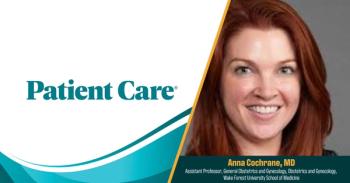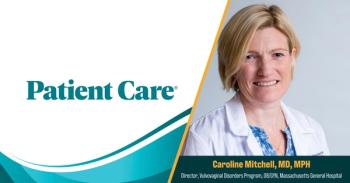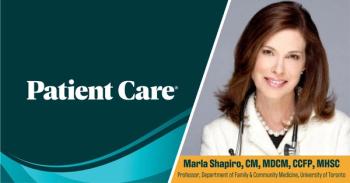
A Pro-Con Debate on How to Care for Patients With Interstitial Lung Disease

DALLAS--Which patients are candidates for antifibrotic therapy? Is extracorporeal membrane oxygenation appropriate for all ILD patients? The topics were hotly debated on Monday at the American Thoracic Society meeting.
DALLAS-At the American Thoracic Society Meeting 2019 held May 17 – 22, 2019, in Dallas, Texas, physicians gathered on Monday morning, May 20th, to debate controversial issues that arise when caring for patients with interstitial lung disease (ILD) during a session titled “When There is No Right Answer: A Pro/con Debate on Controversies in ILD.” Two specific topics were discussed: First, whether antifibrotic therapy is warranted in all patients with idiopathic pulmonary fibrosis (IPF) and, second, whether patients with rapidly progressive ILD should be offered extracorporeal membrane oxygenation (ECMO), a device used to oxygenate a patient’s blood. There were pros and cons and some caveats.
Who should receive antifibrotic therapy?
There are two antifibrotic therapies- Esbriet® (pirfenidone) and Ofev® (nintedanib)-indicated for IPF, but currently, approximately half of patients with IPF aren’t on any treatment and the outcomes are dismal. The median survival among untreated patients is 3 years, and by 5 years after diagnosis, fewer than 1 in 5 patients remain alive.
PRO. Toby Maher, MD, MSc, PhD, Imperial College London, explained that antifibrotic therapy should be discussed with all patients with IPF because the drugs help preserve lung function and improve survival. “[IPF] is a disease where the lung becomes destroyed, and once it's destroyed, there’s no recovering it,” Dr. Maher said. He encouraged physicians to go into every clinic visit planning to offer antifibrotic therapy so the patient can be informed.
“To me it makes no sense to send a patient off to get worse before you initiate treatment.”
CON. Steven Nathan, MD, Inova Fairfax Hospital, Falls Church, Virginia, argued that while antifibrotic therapy should be considered for all patients with IPF, not all patients with IPF warrant such treatment. He emphaiszed that factors such as older age, asymptomatic disease, and stable disease may be reasons to not initiate antifibrotic therapy.
When to offer ECMO
Whether patients with rapidly progressing ILD should be offered ECMO is a highly controversial area of medicine.
PRO. Daniel Brodie, MD, Columbia University Medical Center, New York, argued that ECMO should be offered to patients as a bridge to lung transplantation, to recovery, or to some other goal, such as obtaining a diagnosis. In fact, a
Even when these bridged patients were matched to lung transplant patients who were not bridged, the outcomes were the same despite differences in the lung allocation score. Dr. Brodie concluded that this study shows that ECMO is a “very viable option” for patients awaiting lung transplantation. However, he said, “When lung transplant is not an option, then ECMO has to be a bridge to recovery, or it's going to be a bridge to nowhere.”
CON. James Walter, MD, Northwestern University, Chicago, Illinois, cautioned against the use of ECMO and gave 4 main reasons for this view.
1. The cohort of patients with rapidly progressing ILD is very poorly defined and a uniform definition is needed before the utility of ECMO can be assessed.
2. High-quality data (ie, randomized clinical trials) are lacking to support the use of ECMO.
3. Immunocompromised patients, common among those with rapidly progressing ILD, do not have good survival outcomes when they are placed on ECMO.
4. Use of ECMO can set perilous (unrealistic) expectations among patients and their families.
Dr. Walter emphasized the critical need for clear expectation setting when discussing ECMO as an option. “When patients and families misunderstand what the goal of ECMO is, that’s when ethical issues come up, especially in the setting where ECMO becomes a bridge to nowhere,” he said.
Newsletter
Enhance your clinical practice with the Patient Care newsletter, offering the latest evidence-based guidelines, diagnostic insights, and treatment strategies for primary care physicians.































































































































